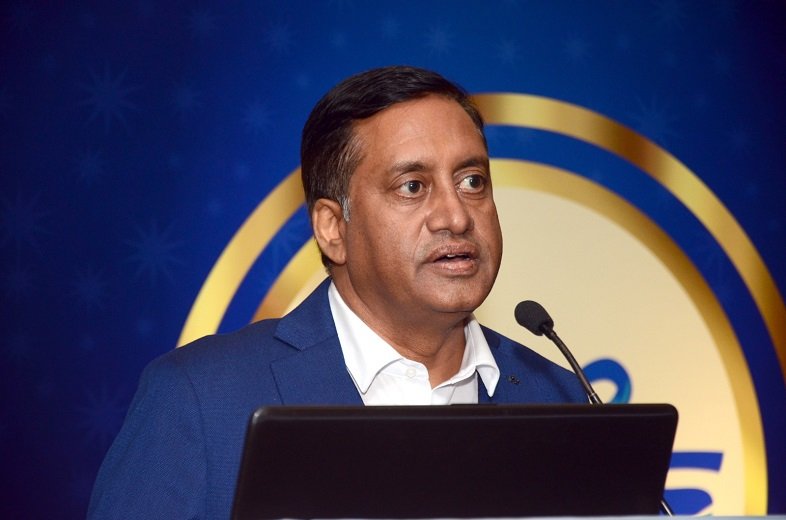
By: Kamal Tiwari, CEO of Daiki Axis India and Director of Daiki Axis Environment
Water is essential for life, but it is also a scarce and precious resource that needs to be conserved and managed wisely. India is facing a serious water challenge due to the increasing population, urbanisation, industrialisation, climate change, and over-exploitation of groundwater. According to a report by NITI Aayog, 21 major Indian cities are expected to run out of groundwater, affecting 100 million people. Moreover, 70% of India’s water is contaminated, posing a threat to public health and the environment.
A crucial problem that directly affects the security of food and energy is water security. The production of food and energy depends on the availability of water resources. But water scarcity is a global issue that is predicted to get worse over the next few years. Water shortage can be reduced, the circular economy can be accelerated, and the local environment and sanitation situation can be revived with the aid of recycling, reuse of treated used water, and circularity. The concept advances the goal of becoming a developed country in many ways and has the ability to create millions of new employments and a green economic cycle.
Reusing and recycling treated wastewater can aid in lowering the demand for freshwater supplies. This strategy can be especially helpful in regions with limited freshwater supplies. Used water that has been treated can be used for drinking, irrigation, and industrial applications.
Decentralised wastewater treatment and reuse at the local level is a sustainable approach to managing wastewater. It involves treating wastewater at or near the source of generation, thereby reducing net water consumption and allowing treated water to replenish the groundwater. Decentralised wastewater systems treat, reuse, or dispose of the effluent in relatively close proximity to its source of generation. They have the purpose of protecting public health and the natural environment by substantially reducing health and environmental hazards.
The treated water can be used for various purposes, such as irrigation, industrial processes, and toilet flushing. For instance, in India, treated wastewater is used for irrigation purposes in agriculture. Treated wastewater use has become mandatory for Power Sector projects. Similarly, this should be made mandatory for other Industrial Sectors.
The adoption of these strategies has the potential to create millions of new employments and advance the process of making a country a developed one. For instance, the wastewater treatment industry may see new job prospects as a result of the recycling and reuse of treated used water. The recycling industry may see new job prospects as a result of circularity.
To address the challenges, the government of India has launched several initiatives and missions to ensure water security and sustainability for present and future generations. On April 24, 2022, Prime Minister Narendra Modi unveiled Mission Amrit Sarovar, one of these crucial initiatives, with the intention of harvesting and saving water for future generations. The mission aims to develop and rejuvenate 75 water bodies in each district of the country as a part of the celebration of Azadi ka Amrit Mahotsav, the 75th anniversary of India’s independence.
Amrit Sarovar means a pool of nectar and is a sacred and historic water tank in Sikhism. This idea served as the inspiration for the mission, which urges the mobilization of citizens and non-governmental resources to support the initiatives. Under this mission, over 60,000 Amrit Sarovars have been constructed so far, and work is in progress for the development of another 50,000 Amrit Sarovars. The completed Sarovars have been identified for different activities such as irrigation, fisheries, duckery, cultivation of water chestnuts, animal husbandry, etc.
The mission is part of the broader National Water Mission, which aims to increase water use efficiency by 20% through regulatory mechanisms with differential entitlements and pricing. The mission also supports the Atal Bhujal Yojana, India’s largest community-led groundwater management program, which is helping improve rural livelihoods and build resilience in seven Indian states that have the highest rates of groundwater depletion.
Mission Amrit Sarovar is a commendable step by the government to tackle the water challenge in India. It not only helps in conserving water for future use but also enhances the ecological and cultural value of water bodies. It also empowers the local communities to participate in water management and governance. The mission reflects the vision of Prime Minister Modi, who said, “Water is not just a matter of life but also a matter of dignity. We have to make every drop count.”
Various organisations are feeling proud by getting associated with the philosophy and are contributing to the government’s mission to tackle the water challenge by providing innovative and eco-friendly solutions like wastewater treatment. Organisations and Institutions are participating in outreach activities and showcasing their achievements and vision for a new India by celebrating the Azaadi ka Amrit Mahotsav.

